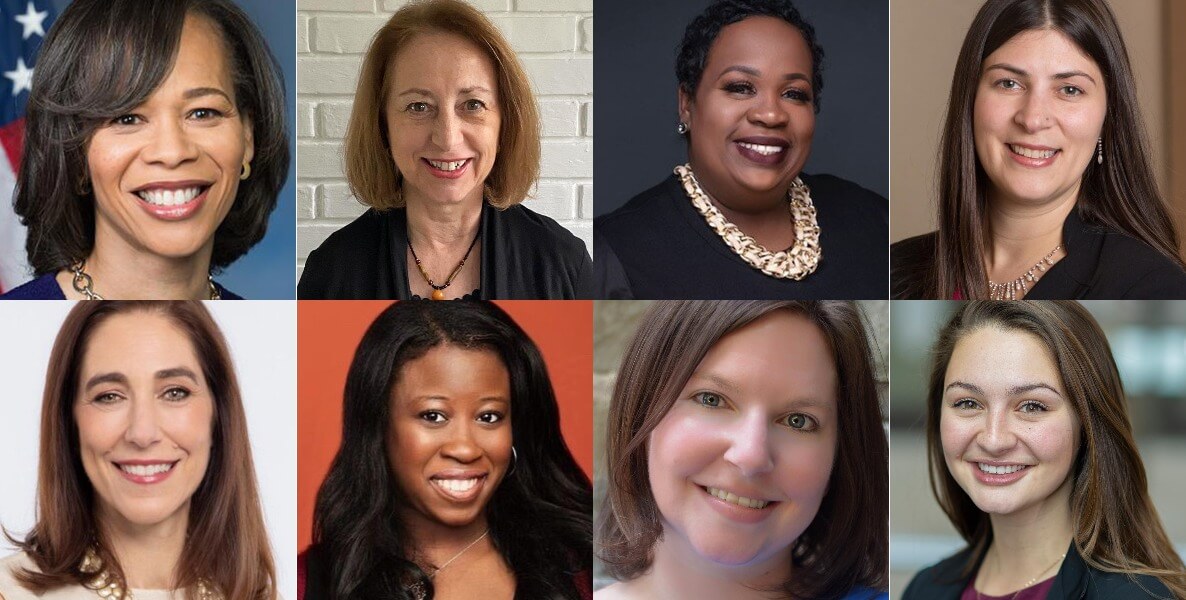![]() As we approach a full year of Covid-based closures of workplaces, schools and childcare facilities, it is with cruel irony we also try to celebrate International Women’s Day and Women’s History Month.
As we approach a full year of Covid-based closures of workplaces, schools and childcare facilities, it is with cruel irony we also try to celebrate International Women’s Day and Women’s History Month.
The past year felt like time travel back to an era dominated by cooking, cleaning and caretaking. The lucky families need help coping with social isolation, screen fatigue, fear, depression and lack of learning. Less fortunate families may also need more support to address hunger, housing insecurity, unpaid utility bills, the digital divide and more.
Who will step up? Women will and especially here. Philadelphia is a top U.S. city for single parents: 57 percent of our households with children are led by single parents, 46.3 percent of Philadelphia homes are held down by single mothers.
In the before times, unpaid domestic labor was largely invisible and mostly private. American working mothers endured an unspoken rite of passage. As a Gen X woman raised on daily doses of Wonder Woman, Princess Leia and the Bionic Woman, I was willing to balance career, family and sanity or die trying.
Now, the perpetual exhaustion is acute and threatens to scar the quality of our regional talent pool. Women’s income, earning power and career prospects are at serious risk. According to Philadelphia Works Inc, the leisure and hospitality industry alone has lost at least 37,600 jobs since last year. Many of those jobs will take a long time to return or not return at all. This is a sector dominated by women, many without college degrees.
![]() Nationally, as of February 2021, more than 2.3 million left the workforce or were forced out. To offer some context to the crisis, about 1.3 million women graduate from college annually. The national female labor participation rate is now down to 57 percent, a number not seen since 1988. A disastrous setback is happening for working women amidst the public health crisis and it is hitting Black and Latinx women even harder, with unemployment rates well above 8 percent.
Nationally, as of February 2021, more than 2.3 million left the workforce or were forced out. To offer some context to the crisis, about 1.3 million women graduate from college annually. The national female labor participation rate is now down to 57 percent, a number not seen since 1988. A disastrous setback is happening for working women amidst the public health crisis and it is hitting Black and Latinx women even harder, with unemployment rates well above 8 percent.
While there are some Family and Medical Leave Act benefits in place, recent reporting by Time magazine documents the conflicts and lawsuits against employers who fail to notify women about family leave protections or punish women’s careers for using the benefit.
Glacial progress on gender equity over recent decades is now being lost. This reality threatens regional ability to adapt to rapid technological change and a more inclusive economic recovery.
![]() Resilience to rapid technological change is not only about re-skilling and up-skilling. Our ability to thrive as a region is dependent on realizing the full potential of our entire talent pool. Men and women, of all races, need to invent, innovate, develop, deploy, translate and sell. Talent wars are already fierce, yet half the talent pool faces significant barriers in the workplace. The longer female talent is sidelined, the harder it will be for companies to secure necessary talent.
Resilience to rapid technological change is not only about re-skilling and up-skilling. Our ability to thrive as a region is dependent on realizing the full potential of our entire talent pool. Men and women, of all races, need to invent, innovate, develop, deploy, translate and sell. Talent wars are already fierce, yet half the talent pool faces significant barriers in the workplace. The longer female talent is sidelined, the harder it will be for companies to secure necessary talent.
How employers can make a difference
According to Accenture’s Tech Vision 2021 report, industry leaders are accelerating digital transformation with an existential fervor. If we want to be a leading metro, we need to modernize our talent mindset. More major employers—both public and private—should evolve more quickly or face serious long-term economic and competitive barriers.
Too often, employers have a “not my problem” approach to work-life balance issues and are not empathetic. This is short-sighted. Some strategic, empathetic corporate leaders are supporting women through the pandemic to retain diversity and talent. If you are interested in a deeper dive, watch this Future of Work Pioneer podcast interview with Verizon’s Chief Human Resource Officer Christy Pambianchi. Responsive moves from corporate leaders, infused with empathy, will not be forgotten by their employees.
We will hear more about how regional businesses have and can support their employees at a Future Works Alliance PHL event on March 16: Women, Work and Covid: The Future is Still Female.
The event will feature several local women business leaders including Ashley Putnam and Sloane Kaiser from the Federal Reserve Bank of Philadelphia; Madeline Bayliss, diversity, equity and inclusion advocate and advisor; and Sharon Clinton, deputy executive director of culture, compliance and organizational infrastructure for the City’s Office of Community, Empowerment and Opportunity.
Citizen Executive Editor Roxanne Patel Shepelavy will moderate a panel featuring Marissa Gilbert, managing director of talent and organization, Accenture Strategy; Tiffany Fields, senior manager of people and culture, Exyn Technologies; and Tracey Welson-Rossman, chief marketing officer, Chariot Solutions, and founder, TechGirlz Foundation. We will also welcome Delaware Congresswoman Lisa Blunt Rochester, chair of the Congressional Future of Work Caucus and leading voice from our region.
Individual leaders and citizens gathering for a common cause is important and this event will be a start to some new strategies.
![]() While policymakers struggle to make incremental change to public policy, companies can deploy smart talent attraction and retention tactics now. Women have been proven to drive collaboration, engagement, creative problem-solving and innovation across public and private sectors. Business leaders who act now to support parents will have a competitive edge.
While policymakers struggle to make incremental change to public policy, companies can deploy smart talent attraction and retention tactics now. Women have been proven to drive collaboration, engagement, creative problem-solving and innovation across public and private sectors. Business leaders who act now to support parents will have a competitive edge.
Here are some initial ideas:
- In the short term, companies can publicly pledge to ignore the pandemic resume gap. 2020 was a ridiculous year with thousands of never-before-imagined home and family challenges. Do women really need to explain this? Seriously? How about we code this “Covid Cluster” and enough said.
- Long-term, let’s commit to use the scorecard from Working Mother 100 Best Companies to assess this region’s major employers, both public and private. This simple evaluation step, complete with big public awards, would be a strong move in the right direction. Right now, most regional companies are unwilling to provide data on race and gender in hiring, retention, promotion, compensation or C-Suite positions, according to a recent regional report that could have been titled Women Not in Leadership.
- Commit to reducing the greatest stress young families endure: affordable, quality childcare. The Federal Reserve Bank of Philadelphia recently conducted research and convened business leaders. The solutions anchored an event and it is recorded here:The Business Case for Employer-Assisted Childcare for Companies.
- If you are involved in hiring or promotions, please do a quick self-check for gender-career bias. This anonymous Implicit Association Test ( IAT) for Gender Career Task will help you and help Harvard researchers. It was really interesting to experience and only takes about 7 minutes.
- Lastly, read this report that should be called Women Shoved from the Workplace: Especially Black and Hispanic Women.
Meanwhile, when children go back to school and childcare, permanently incorporate work-from-home flexibility but please skip the surveillance. In multiple surveys, workers consistently prefer flexible WFH situations. Give employees control and choice over where and when work happens, without penalty for career advancement. This will be a game-changer for working moms (and dads).
Join us March 16 from 9:30-11:30am to learn how acute pandemic problems can become the solutions of tomorrow. Register to participate in an interactive discussion and help shape the female future.
RELATED VIDEO CONTENT
Anne Gemmell is the founder of Future Works Strategy, a consulting business focused on future-proofing. She is the former director of Special Initiatives in the City of Philadelphia Office of Workforce Development, where she was responsible for creating strategic plans focusing on emerging technologies, their effects on talent pipelines and actions for “future-proofing” our local economy. A longtime policy strategist, she also worked with the Kenney administration on the equitable design, advocacy and successful funding of the PHL PreK program.





